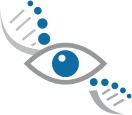May 8, 2020, Santen Pharmaceutical Co., Ltd. (Headquarters: Osaka, hereinafter Santen) and jCyte Inc. (Headquarters: California, US, hereinafter jCyte) announced the conclusion of an exclusive licensing contract covering the development, registration and commercialization rights in Japan, Asia and Europe to jCell, a first-in-class investigational therapy in currently in clinical development for retinitis pigmentosa.
jCyte has been developing a treatment for retinitis pigmentosa, a genetic degenerative retinal condition. jCell is a cell therapy product, and its principal component is retinal progenitor cells. The product is administered through intravitreal injection, a procedure that is minimally invasive in comparison to the standard method of direct retinal injection used for other genetic and cell therapies. The cells introduced into the eye release cell growth and protection factors that activate and protect retinal cells. Such mechanism of action is believed to have the potential to be applied to all types of retinitis pigmentosa irrespective of the condition’s genetic causes. Plans are also in place to investigate the potential application of jCell to degenerative diseases affecting retinal cells other than retinitis pigmentosa.
In the United States, the evaluable portion of a Phase 2b clinical trial of jCell for the treatment of retinitis pigmentosa has been completed, and the crossover portion continues. jCell therapy has been administered in over 100 patients. The U.S. Food and Drug Administration (FDA) has granted jCyte Regenerative Medicine Advanced Therapy (RMAT) designation based on early clinical data, making jCell potentially eligible for BLA priority review. In addition to RMAT, jCell has received Orphan Drug designation from the FDA and the European Medicines Agency (EMA).
Under the terms of the licensing agreement, jCyte will receive up to $252 million in upfront and milestone payments during the course of the collaboration, not including future royalties on jCell net sales outside the United States in Europe, Asia and Japan. jCyte will receive an upfront fee of $50 million in cash, $12 million in a convertible note offering, and up to an additional $190 million in cash milestone payments based on regulatory approval and initial sales in Japan, and certain markets in Asia and Europe. jCyte is also entitled to receive royalty payments on net sales of investigational therapy jCell in Europe, Asia and Japan.
Retinitis pigmentosa, a disease caused by genetic mutations, causes wide-ranging degeneration of retinal photoreceptor cells and retinal pigment epithelial cells. Characteristic symptoms caused by the condition include night blindness, narrowing of the visual field, and decreased visual acuity. It often strikes people in their teens, with many patients rendered blind by middle age. Worldwide, approximately 1.9 million patients suffer from the disease1. In Japan, estimates suggest 18.7 people per 100,000 of population have the condition2. Retinitis pigmentosa has a wide impact on everyday life as it affects any operation requiring vision including movement and learning. Unmet medical needs in relation to retinitis pigmentosa are significant and treatments that are currently available do not provide an underlying cure or reduction in the speed of retinal degeneration.
Santen is committed to major investments in innovative new treatments that will enable us to provide wider treatment choice for patients, fulfilling our mission to contribute further to patients’ lives.
*1 Source: Hamel C. Retinitis pigmentosa. Orphanet J Rare Dis. 2006;1:40.
*2 Source: Japanese Ophthalmological Society http://www.nichigan.or.jp/public/disease/momaku_shikiso.jsp
About Santen
As a specialized company dedicated to ophthalmology, Santen carries out research, development, marketing, and sales of pharmaceuticals, over-the-counter products, and medical devices. Santen is the market leader for prescription ophthalmic pharmaceuticals in Japan and its products now reach patients in over 60 countries. With scientific knowledge and organizational capabilities nurtured over a nearly 130-year history, Santen provides products and services to contribute to the well-being of patients, their loved ones and consequently to society. For more information, please visit Santen’s website (www.santen.com).
About jCyte, Inc.
jCyte, Inc. is a clinical-stage biotech company focused on developing jCell therapy for retinitis pigmentosa (RP) and other degenerative retinal diseases. jCell is a potential first-in-class investigational treatment for retinitis pigmentosa, an inherited retinal disease. The treatment is minimally-invasive and delivered via intravitreal injection. There are currently no approved therapies for RP. The company is pioneering a new era of regenerative therapies to treat patients with unmet medical need. For more information, visit www.jcyte.com
Santen Forward-looking Statements
Information provided in this press release contains forward-looking statements. The achievement of these forecasts is subject to risk and uncertainty from various sources. Therefore, please note that the actual results may differ significantly from the forecasts. Business performance and financial conditions are subject to the effects of changes in regulations made by the governments of Japan and other nations concerning medical insurance, drug pricing and other systems, and to fluctuations in market variables such as interest rates and foreign exchange rates.

